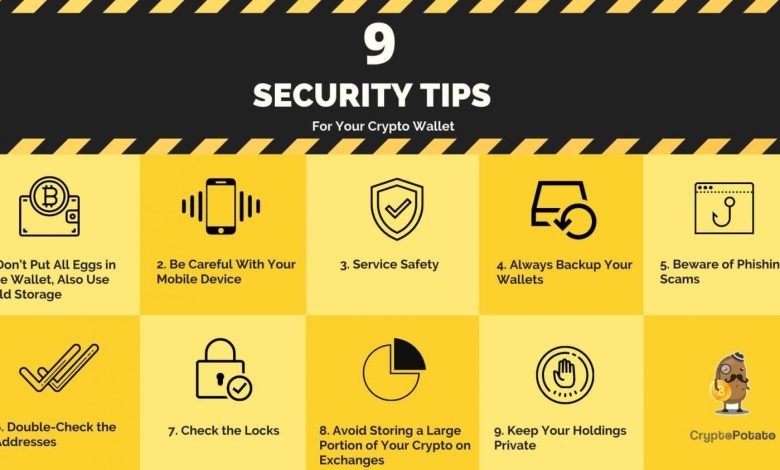How to Secure Your Crypto Assets in the Cloud

- Understanding the risks of storing crypto assets in the cloud
- Best practices for securing your crypto assets in cloud storage
- Choosing the right cloud storage provider for your crypto assets
- Implementing encryption techniques to protect your crypto assets in the cloud
- Creating strong passwords and multi-factor authentication for cloud storage security
- Regularly monitoring and updating security measures for your crypto assets in the cloud
Understanding the risks of storing crypto assets in the cloud
When it comes to storing your crypto assets in the cloud, it is important to understand the risks involved. While cloud storage can offer convenience and accessibility, it also comes with potential security vulnerabilities that could put your assets at risk.
One of the main risks of storing crypto assets in the cloud is the possibility of a data breach. If a hacker gains access to your cloud storage account, they could potentially steal your private keys or other sensitive information, putting your assets in jeopardy.
Another risk to consider is the possibility of the cloud service provider experiencing a security breach. While most reputable providers have security measures in place to protect against this, there is always a chance that a breach could occur, leaving your assets vulnerable.
Additionally, storing your crypto assets in the cloud means that you are relying on a third party to keep your assets safe. While many cloud storage providers offer encryption and other security features, there is always a level of trust involved in allowing someone else to safeguard your assets.
It is important to weigh the convenience of storing your crypto assets in the cloud against the potential risks. If you choose to store your assets in the cloud, be sure to take precautions such as using strong, unique passwords, enabling two-factor authentication, and regularly monitoring your accounts for any suspicious activity.
Best practices for securing your crypto assets in cloud storage
When it comes to securing your crypto assets in cloud storage, there are several best practices you should follow to ensure the safety of your investments. Here are some key tips to help you protect your cryptocurrency holdings:
- Use a reputable cloud storage provider: Choose a well-known and trusted cloud storage service with a proven track record of security.
- Enable two-factor authentication: Add an extra layer of security to your cloud storage account by enabling two-factor authentication.
- Encrypt your data: Before uploading any crypto assets to the cloud, make sure to encrypt your files to protect them from unauthorized access.
- Regularly update your security settings: Stay up to date with the latest security features offered by your cloud storage provider and make sure to implement them.
- Use strong, unique passwords: Create complex passwords for your cloud storage account and avoid using the same password for multiple accounts.
- Backup your data: Keep backups of your crypto assets in multiple locations to prevent data loss in case of a security breach.
By following these best practices, you can significantly reduce the risk of unauthorized access to your crypto assets stored in the cloud. Remember that security should always be a top priority when it comes to managing your cryptocurrency investments.
Choosing the right cloud storage provider for your crypto assets
When it comes to securing your crypto assets in the cloud, choosing the right storage provider is crucial. There are several factors to consider when selecting a cloud storage service for your digital assets.
First and foremost, **security** should be your top priority. Look for a provider that offers end-to-end encryption, two-factor authentication, and regular security audits to ensure that your assets are safe from hackers and other threats. Additionally, consider the provider’s reputation in the industry and read reviews from other users to gauge their trustworthiness.
Another important factor to consider is **reliability**. You want a cloud storage provider that offers a high level of uptime and minimal downtime to ensure that you can access your assets whenever you need them. Look for a provider that offers redundant storage and backup options to protect your assets in case of hardware failure or other issues.
**Cost** is also an important consideration when choosing a cloud storage provider for your crypto assets. Compare pricing plans from different providers and consider the value you are getting for your money. Keep in mind that the cheapest option may not always be the best, especially when it comes to the security and reliability of your assets.
In addition to security, reliability, and cost, consider the **features** offered by each cloud storage provider. Look for a provider that offers easy integration with your existing systems, as well as features like file versioning, file sharing, and collaboration tools. Consider your specific needs and choose a provider that offers the features that are most important to you.
Ultimately, the right cloud storage provider for your crypto assets will depend on your individual needs and preferences. Take the time to research and compare different providers to find the one that offers the best combination of security, reliability, cost, and features for your specific situation. By choosing the right provider, you can rest assured that your crypto assets are safe and secure in the cloud.
Implementing encryption techniques to protect your crypto assets in the cloud
When it comes to securing your crypto assets in the cloud, implementing encryption techniques is crucial. Encryption helps protect your sensitive information from unauthorized access and ensures that your assets remain safe and secure.
There are several encryption techniques that you can use to safeguard your crypto assets in the cloud. One of the most common methods is using end-to-end encryption, which ensures that your data is encrypted from the moment it leaves your device until it reaches its destination. This helps prevent any unauthorized parties from intercepting your information.
Another effective encryption technique is using strong passwords and multi-factor authentication. By creating complex passwords and enabling multi-factor authentication, you add an extra layer of security to your crypto assets. This makes it more difficult for hackers to gain access to your accounts and steal your assets.
Additionally, you can consider using hardware wallets to store your crypto assets securely. Hardware wallets are physical devices that store your private keys offline, making it nearly impossible for hackers to access them remotely. By combining encryption techniques with hardware wallets, you can significantly enhance the security of your crypto assets in the cloud.
Creating strong passwords and multi-factor authentication for cloud storage security
When it comes to securing your crypto assets in the cloud, creating strong passwords and utilizing multi-factor authentication are crucial steps to take. These security measures help protect your sensitive information from unauthorized access and potential breaches.
When creating a password for your cloud storage account, it is important to use a combination of uppercase and lowercase letters, numbers, and special characters. Avoid using easily guessable passwords such as “password123” or “123456.” Instead, opt for a unique and complex password that is difficult for hackers to crack.
Additionally, enabling multi-factor authentication adds an extra layer of security to your cloud storage account. This feature requires you to provide two or more forms of verification before gaining access, such as a password and a unique code sent to your phone. This significantly reduces the risk of unauthorized access even if your password is compromised.
Regularly monitoring and updating security measures for your crypto assets in the cloud
Regularly monitoring and updating security measures for your crypto assets in the cloud is crucial to protecting your investments. By staying vigilant and proactive in managing the security of your digital assets, you can reduce the risk of cyber attacks and theft.
Here are some best practices to follow when it comes to securing your crypto assets in the cloud:
- Regularly update your security software to patch vulnerabilities and protect against new threats.
- Enable two-factor authentication for an extra layer of security when accessing your crypto wallets.
- Monitor your accounts for any suspicious activity and take immediate action if you detect any unauthorized access.
- Regularly backup your crypto keys and store them securely in offline locations to prevent loss in case of a security breach.
By implementing these security measures and staying up to date with the latest security practices, you can protect your crypto assets in the cloud from potential threats and ensure the safety of your investments.



